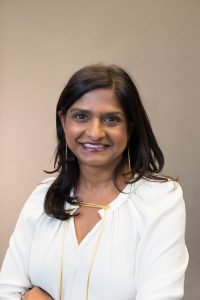Georgetown Law’s Two-Year LL.M. Program for Multilingual Lawyers Celebrates 10 Years of Graduates
November 20, 2020

As an in-house lawyer for a large Nicaraguan import company in Managua, Jose Maria Enriquez never expected English would be essential to his job.
“There was a pattern, all the contracts were in English and most were subject to US law,” he said. “Even the contracts with other Latin American companies were written in English. It’s something that caught my attention.”
Like many foreign trained lawyers, Enriquez found that English was the default language of international commerce and law. Though his language skills were strong, he worried about his ability to go toe-to-toe with native English speakers, using legal vocabulary and a common law system that is not his own. Moreover, he was concerned that his career could stall.
“I know I want to work in international business law,” he said. “I was concerned my opportunities would be limited.”
Enriquez is now one of 108 students in Georgetown Law’s Two-Year LL.M Program with a Certificate in Legal English. Founded more than a decade ago, it was the first program of its kind for foreign-trained lawyers who want to delve into an LL.M specialization that is complemented by an innovative Legal English curriculum.
The program attracts students from a variety of legal systems and backgrounds and is firmly rooted in Georgetown’s commitment to global collaboration in the pursuit of social justice.
“Our program shouts from the rooftops that we value diversity in the legal profession,” said Professor Madhavi Sunder, Associate Dean for International and Graduate Programs. “We feel really proud of giving our alumni the tools and knowledge to become legal reformers and promote justice around the world.”
In a typical year, students from more than 10 countries attend the program. Alumni include government ministers, ambassadors, elected officials and academics around the world.
Celebrating multilingualism

Professor Madhavi Sunder, Associate Dean for International and Graduate Programs
With the coronavirus forcing a shift to online learning, Georgetown is pioneering new ways of educating multilingual lawyers. It is piloting a six-week virtual Legal English course for incoming LL.M students whose arrival on campus has been delayed until January. The online course is aimed at bolstering their English and getting them ready for the spring semester. Eventually, it will be made available to any foreign-trained lawyer who is interested in Legal English instruction.
In addition, Georgetown Law’s Center for Legal English has also expanded its offerings for foreign J.D. students seeking additional support. That includes writing workshops, structured English in Context workshops, and one-on-one pronunciation classes to help students who want to improve their speaking skills.
The aim is to foster an appreciation for multilingual lawyers and “show how much we value them and the contributions they’re going to make to law and justice around the world,” Sunder said.
“We need lawyers of diverse backgrounds who are culturally competent and appreciate different histories and cultures,” she added. “Those are the lawyers who are best equipped to answer the complex challenges we face today in a multicultural and multilingual society.”
An interdisciplinary approach
Georgetown’s Legal English LL.M. is unique. All faculty teaching the two-year program either have a Ph.D in Linguistics, an American J.D., or both. They guide students to analyze and discuss the language used in legal opinions, appellate briefs, law review articles, commercial contracts, statutes, and other documents. This provides linguistic tools and a deeper understanding of U.S. legal discourse and the common law system.

Professor Craig Hoffman
“Our faculty uses students’ shared interest in law to accelerate language learning,” said Professor Craig Hoffman, a linguist and lawyer who founded the program. “At the same time, analyzing language helps them learn law. It’s this interdisciplinary approach between linguistics and law, there isn’t anyone else who’s doing it this way.”
Alumni of the program say they welcomed the emphasis on critical thinking and inquiry.
“It was very different from my other academic experiences,” said Bilge Yalcin (LL.M ’11) of Turkey. “I am coming from a society where if you don’t have a really good idea you shut your mouth. This program makes you speak, it makes you share. It’s a holistic approach designed to give you a better understanding of U.S. legal culture, U.S. legal system, U.S. legal discourse.”
The program marked a turning point in Yalcin’s professional development and career. After Georgetown, she moved from a position with Turkey’s Treasury Department to a prestigious London-based law firm. She now works for the World Bank in Istanbul.
“My communication skills were totally different after the program, more direct, more succinct, more confident,” said Yalcin. “It’s invaluable.”